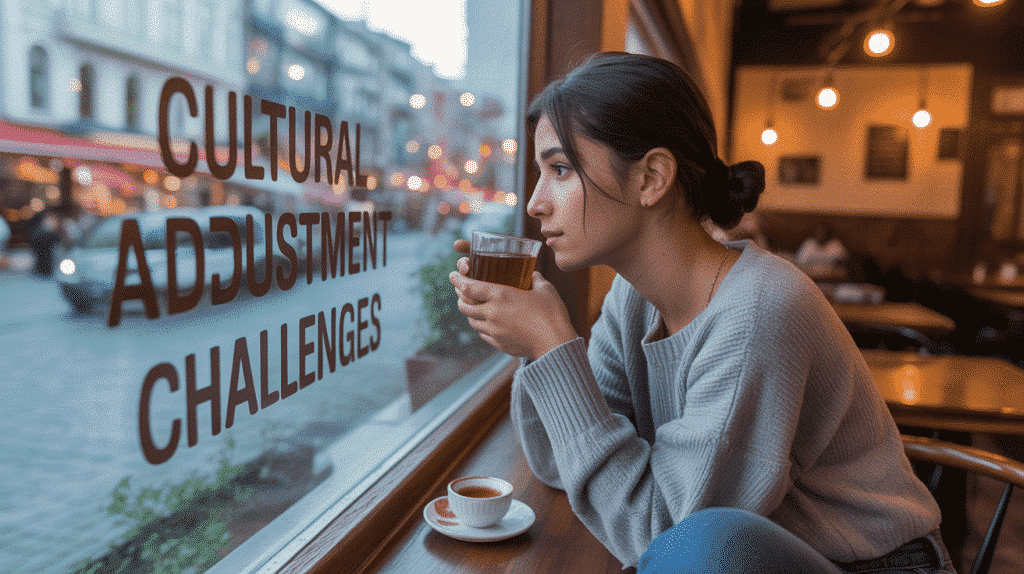Cultural Adjustment Challenges for Mature/Graduate Students in Turkiye
Socio-Cultural Adaptation Challenges
Mature and graduate students arriving in Turkiye encounter a variety of socio-cultural challenges. Key factors affecting their adaptation include:
- Differences in Norms and Values: Varied cultural backgrounds can lead to misunderstandings and clashes in expectations about social behaviors and academic ethics.
- Food and Cuisine: The adaptation to new diets and culinary practices can be overwhelming, especially for those with dietary restrictions or specific preferences.
- Dormitory Culture: Adjusting to shared living environments can pose difficulties, notably for those used to different living arrangements.
- Nonverbal Communication: Understanding the nuances of nonverbal cues in Turkish culture can be daunting for newcomers.
Many international students arrive in Turkiye with limited knowledge about its culture, making the initial adjustment particularly challenging. The collectivist nature of Turkish society may magnify these challenges for individuals from more individualistic cultural backgrounds, affecting how students engage in social interactions and group work dynamics.
Language Barriers
Language presents one of the most significant hurdles for international graduate students in Turkiye. Research has shown that language difficulties complicate both socio-cultural and academic integration. Common language-related challenges include:
- Communication Difficulties: Engaging with the broader Turkish community becomes a challenge when there are language barriers.
- Frequent Miscommunications: Language ambiguity can lead to misunderstandings in both casual and formal situations.
- Academic Limitations: Non-native speakers often struggle to grasp professors’ expectations and participate in class discussions.
- Institutional Interactions: Navigating bureaucracy or public services in a foreign language can prove daunting.
These barriers are particularly pressing for mature students, who may possess established professional communication skills but find themselves challenged in basic interactions.
Academic Challenges
While socio-cultural barriers may diminish over time, academic challenges tend to persist and evolve as students progress. Key academic difficulties encountered by graduate students include:
- Understanding Academic Expectations: Graduate students often report confusion about the expectations set by professors and the academic environment.
- Engagement in Class: Active participation in discussions and group work can be challenging when language and cultural norms differ.
- Navigating University Structure: Building relationships with university staff and peers can be difficult in a new educational setting.
- Adapting Writing Styles: Academic writing norms often vary significantly, causing frustration as students adjust their skills to fit foreign standards.
Graduate students, having typically been away from formal education for an extended period, may find it particularly demanding to reacquaint themselves with academic rigors.
Adaptation Resources and Strategies
Recognizing these cultural and academic challenges, universities in Turkiye are increasingly implementing supportive resources for international students. To effectively assist mature graduate students, institutions can focus on:
- Orientation Programs: Comprehensive introductory sessions can help new students acclimatize to both academic and cultural aspects of life in Turkiye.
- Language Support Services: Offering intensive language courses can facilitate smoother communication and integration.
- Peer Support Networks: Establishing mentorship programs that connect new students with locals can ease feelings of isolation and foster relationships.
- Cultural Exchange Programs: Encouraging involvement in cultural activities can deepen understanding and appreciation of local customs.
Understanding the unique needs of mature and graduate students allows educational institutions to tailor supportive services that impact positively on their experience.
Time-Dependent Nature of Adaptation
It is essential to acknowledge that the process of adaptation is not linear. While socio-cultural challenges may decrease with time, academic hurdles often remain present throughout the educational journey. For graduate students enrolled in shorter programs, the overlap of ongoing cultural adjustments with academic pressures can lead to increased stress.
To aid this process, the right support from university staff and faculty can result in a more accommodating environment, allowing students to thrive personally and academically.
Conclusion
Cultural adjustment poses various challenges for mature and graduate students in Turkiye. By understanding these unique obstacles, educational institutions can play a pivotal role in facilitating successful adaptation processes. At Study in Turkiye, we are committed to not only guiding international students through admission processes but also providing resources to help navigate cultural adjustments.
Take the Next Step with Study in Turkiye
Explore further to discover your path to academic success in Turkiye. We are here to assist you!


Social Isolation and Integration
Social isolation is an unfortunate reality for many international graduate students in Turkiye. Despite the kindness and politeness of Turkish domestic students, forming meaningful friendships can be challenging. Contributing factors include:
Finding avenues for meaningful social engagement can be particularly stressful for mature students, who might value deep connections more than younger peers.